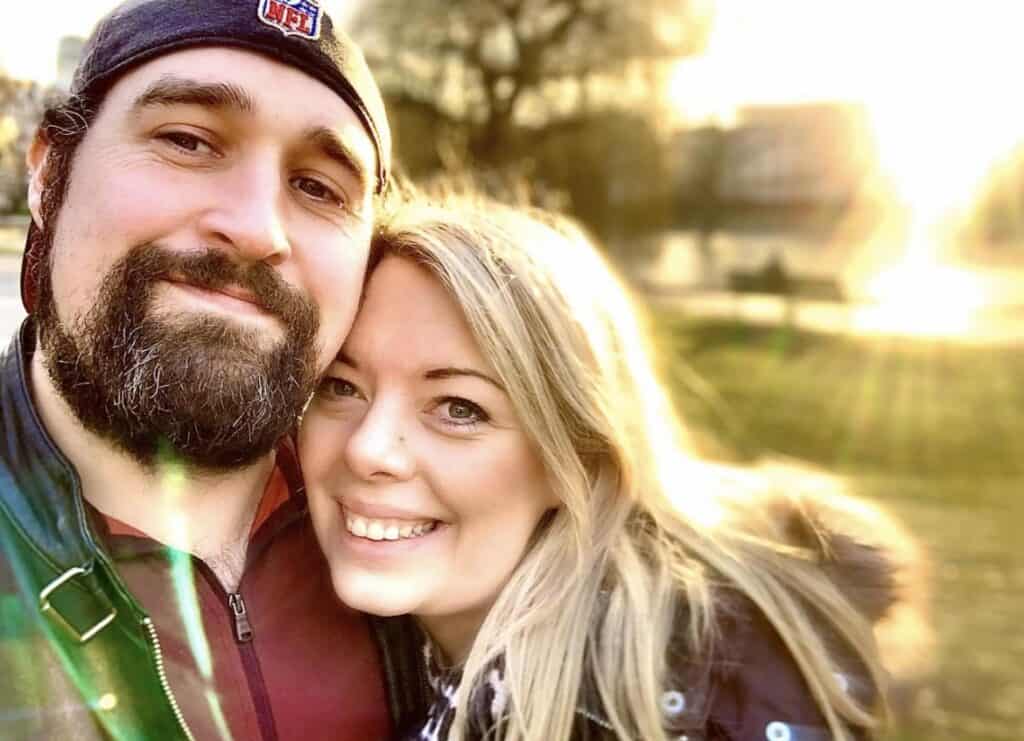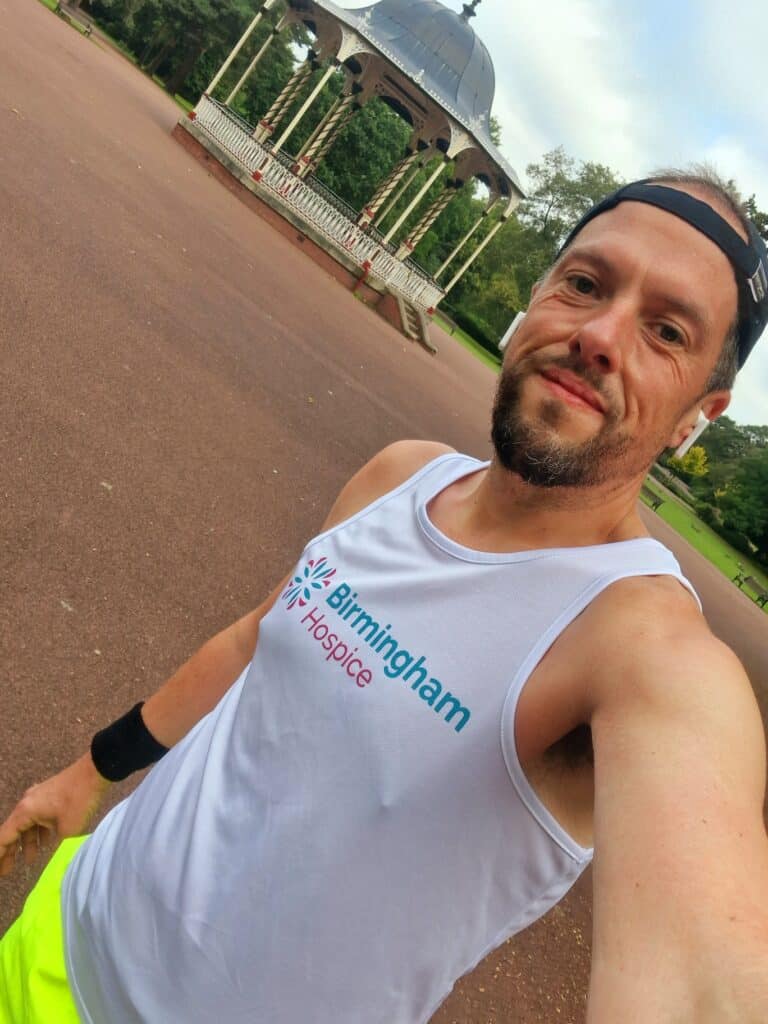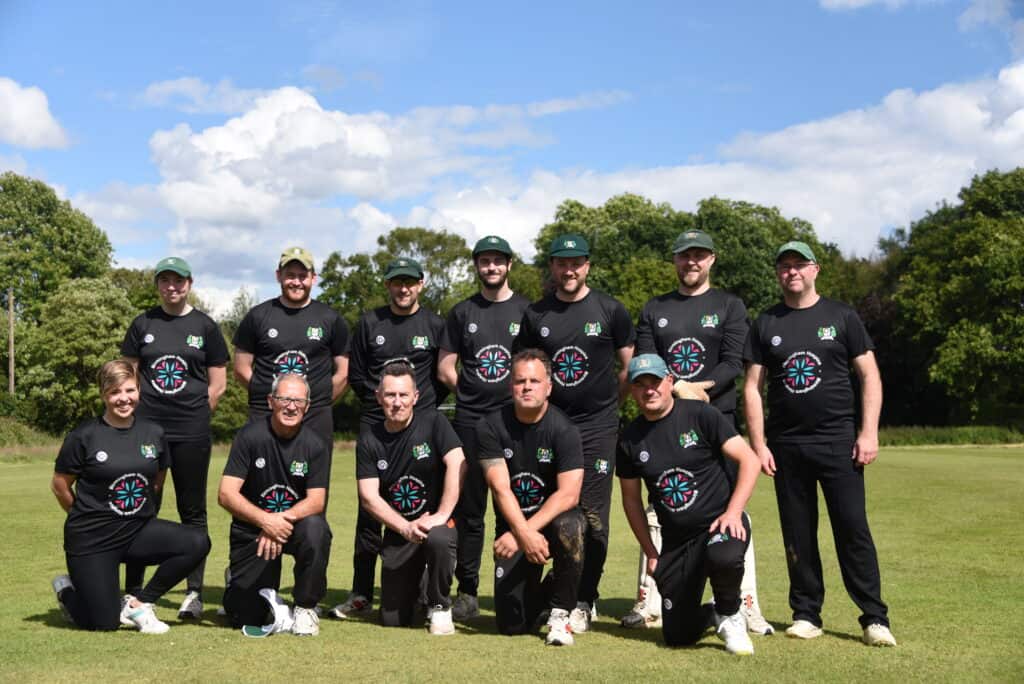Dr Christina, a Consultant here at Birmingham St Mary’s tells us about caring for Brian, her grandfather-in-law, before he died…
Brian had a special place in my heart as the first time I met him he was incredibly welcoming into the family. He was a headteacher, the kind of person who could tell everybody else what to do and never accept advice himself!
He was diagnosed with metastatic prostate cancer (when cancer has spread to other parts of the body) a couple of years before he died. After he fell and broke his hip, he ended up in hospital for quite a while and it was there he expressed a wish to die at home. We felt as a family it was really important to honour that wish.
Brian was a stoical chap – he took what life threw at him. He didn’t particularly express huge emotion; he just said he’d ‘take things day by day’ which is a common reaction amongst our patients.
Brian was able to have open and honest conversations with me because he knew as a healthcare professional I could. He knew he was dying, but struggled to speak about it with his family, particularly his wife. He was worried about frightening her and she was worried about frightening him. I was having the same conversations with both of them about the future. Looking back I should have put them in the same room and said, ‘can we all have a conversation together so we’re singing from the same hymn sheet?’
Brian wanted to die at home with his family around him, looking out on to his garden. He’d looked after his garden all his life and it was beautiful. So he ordered my husband about, getting him to cut back hedges so he could see it properly.
His friends were also hugely important to him so in the last few weeks of his life he managed to get into a chair which was an epic challenge and sit and drink whisky with three of his closest friends.
His big goal was to get back out onto the golf course and play a round, obviously that wasn’t possible because he couldn’t walk. I think he knew that it wasn’t ever going to happen but it was nice for him to have something to aim towards.
The really important thing is using the support around you even if it’s just saying to friends ‘I need to go out to the pub tonight’ or to your family ‘I need a night off from caring’. It’s making the most of the friends and family who can support you as the carer as well as the patient.
My favourite memory of that time is Brian sitting up in bed with a glass of fluorescent blue energy drink in his hand with one of his carers – who always wore stilettos and very low cut tops – bending over him to attend to him. Remembering the look on his face just makes me laugh!
I learnt that it’s incredibly hard caring for someone who is dying. By then, I had worked in palliative care for 8 or 9 years and I’d thought that families did a little bit and professionals did a lot, but that was completely turned on its head. I understood that families do the vast majority of caring and emotional support with the professionals helping a little bit in the background.
My advice to people going through this is to get as much support as possible. Things like people offering to pop in and sit with the person for a little while or go shopping or dog sit or whatever- say yes! The British population are quite reserved about this; we feel we can’t say yes. But saying ‘yes’ to help is really important.
From a professional point of view, having conversations early is really helpful. With Brian, we left some conversations such as funeral planning until quite near the end when he was very sleepy. If we’d had them earlier he could have been a lot of help with them. As it was we only had the broad details and it felt difficult planning the funeral without the specifics.
Many things contribute to a person having a good death. Having symptoms like sickness, pain or constipation controlled can be massively helpful. Being supported to talk through how you’re feeling can make a big difference whether that’s with a professional or with friends or family.
Many people are worried about who is going to look after their family in the future; I see that all the time in my practice. That causes people more distress than what’s going to happen to them. It’s important to reassure patients that their family will be looked after and it’s helpful at the Hospice when we can explain the bereavement services we offer.
My single piece of advice about death and dying is to talk about it when you’re completely well. As a result of Brian dying my husband and I have talked about lasting powers of attorney and about what we do and don’t want at the end of life. You don’t need to do this with a solicitor. You can do this online and get a friend to witness it. It costs about £80 to register.
The most common insight from my job is the sense of peace – if that’s the right word – when you’ve gone through the process with someone and provided what they want. That gives you some peace in bereavement. I certainly felt this after Brian died, that we’d done the best for him and fulfilled his wishes. I see a lot of people feeling guilty when it hasn’t gone as well as it could have done and often that’s when it’s been rushed and hasn’t been planned in advance.
We can definitely be more supporting as communities with death and dying. Some neighbours of Brian’s asked if they could do anything, so we sent them down the road to get milk because we’d run out with all the cups of tea we’d made for Brian’s visitors. That took one job off our hands.
There’s a huge role for informal care and support that’s bigger than the formal role. We only saw Brian’s fantastic team of professionals for a couple of hours a day, the rest of the time it was just us caring for him.
My hope for Dying Matters Awareness Week is that we make talking about death a little bit more normal and a little bit less frightening, because talking about death doesn’t make it happen but it can make it easier.



